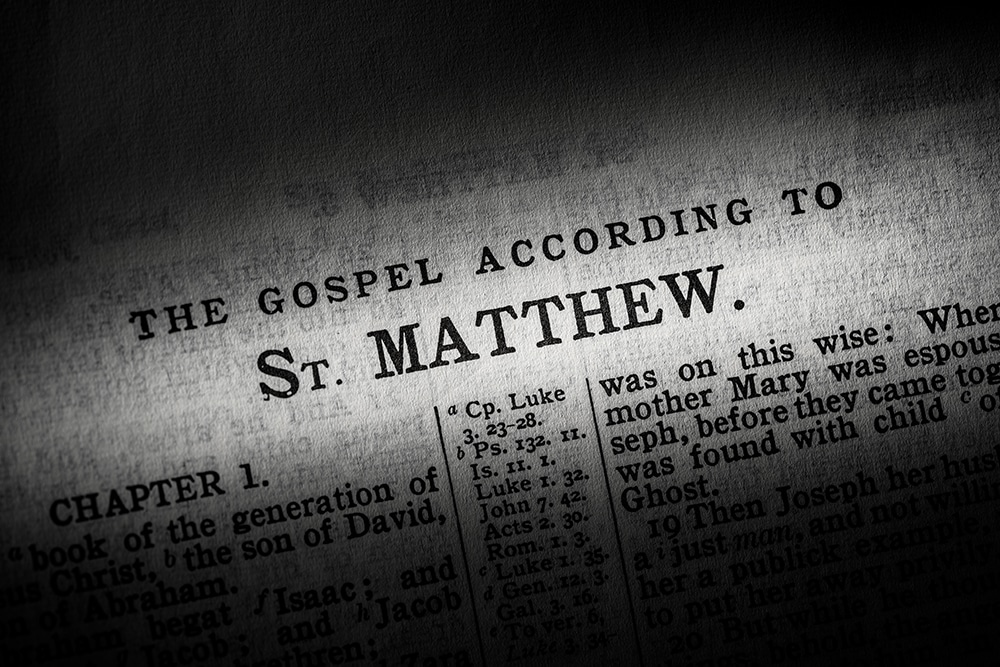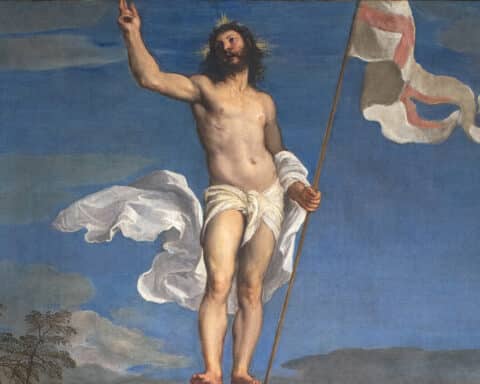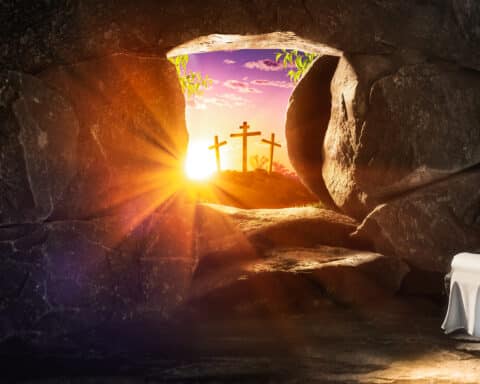
— Albert Cross, Detroit, Michigan
Answer: It is a very mysterious text that does not lend itself to simple or satisfying explanations. It also raises other questions: Was this reported elsewhere in literature from the time? Why do the other Gospels not mention something so startling? Who rose? How many? What happened after they rose? Did they go back to life in Jerusalem or did they appear for only a moment?
We are simply left to wonder as to the details. But we must recall that each of the evangelists selected their material carefully and according to set purposes. Brevity of written texts in those times was more important than verbiage given the costly nature of writing long before the printing press.
Matthew seems to have two purposes in mind: He reports what actually happened, but he does this with the goal of showing how Scripture is fulfilled — for example: “Therefore, prophesy and say to them: Thus says the Lord God: Look! I am going to open your graves; I will make you come up out of your graves, my people, and bring you back to the land of Israel” (Ez 37:12), or again, “Shall I deliver them from the power of Sheol? shall I redeem them from death?” (Hos 13:14).
While the details of the passage about the dead coming forth and appearing to many are sparse, what should be avoided are notions of the dead wandering the streets in a zombie-like way. This is not an American horror film being described. Rather, Matthew asserts that many (indicating more than a few, but not necessarily thousands, hundreds or even dozens) rose bodily and appeared to many (again, indicating more than a few, but not necessarily thousands, hundreds or even dozens). How they appeared and to whom is not elaborated. But the text does not depict them walking about Jerusalem and being seen indiscriminately by everyone. It may well have been a select number who were privileged to encounter the risen dead.
St. Thomas Aquinas gives what seems the most satisfying answer. He bases his views on Jerome. First of all, he does not think this event actually happened at this moment of the Lord’s death, but only after the Lord’s resurrection. And thus Matthew puts it here as a kind of proleptic. St Thomas says, “And one should note that although this was said in the description of Christ’s death, yet one should understand that it was said by way of anticipation, because it was done after the Resurrection; for Christ is the first born of the dead” (cf. Rv 1:5).
Further, St. Thomas speculates on the possibility that the Holy City mentioned here where they appear may not have been Jerusalem at all, but the Holy City called heaven. He writes: “They entered into the holy city, namely the heavenly city, because they went with Christ into glory. And appeared there to many.”
God is love
Question: Why was the Resurrection so hidden? Scripture says Jesus was “visible, not to all the people, but to us, the witnesses chosen by God in advance, who ate and drank with him after he rose from the dead” (Acts 10:40-41).
— Name withheld
Answer: I can only speculate by recalling that God is love (cf. 1 Jn 4:16). Love is not merely something God does, nor is it just one of his many attributes. Scripture says that God is love. It is in the nature of true love for the lover to invite (or woo) his beloved rather than overwhelming, coercing or forcing. The lover wants to be loved, but forcing his beloved into a fearful love would mean not receiving true love in return.
God does not engage in egotistical displays meant to intimidate his opponents and gloat. He does not force them to believe by overwhelming them with evidence or forcing their worship. He whispers. Likewise with us all, he calls us and gently draws us in. He provides evidence and supplies grace but does not overwhelm us with fearsome or noisy events. He is the still, small voice that Elijah heard after the fire and the earthquake (cf. 1 Kgs 19:12).
Msgr. Charles Pope is the pastor of Holy Comforter-St. Cyprian in Washington, D.C., and writes for the Archdiocese of Washington, D.C. at blog.adw.org. Send questions to msgrpope@osv.com.





